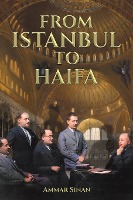This book is based on the true story of five siblings who played pivotal roles in the most significant political and historical events that unfolded in the Levant region between the years 1890 and 1948 CE. These events were instrumental in the emergence of entire nations in the Middle East, the collapse of others, and continue to be the primary influence on everything we have experienced and are living today.Within the pages of this book, we traverse a diverse geographical and historical landscape encompassing the Levant, Egypt, Iraq, the Arabian Peninsula, Turkey, and Iran. We witness the Arabs' attempts to realize their dream of building an independent unified Arab state, The alleged efforts by the superpowers of that age to undermine and thwart their aspirations were akin to conspiracies against their dreams, and the establishment of the Zionist entity in Palestine. The reader is taken through historical events starting from the Balkan Wars and the fall of the Ottoman Empire to the establishment of the Arab state, the correspondences of Hussein McMahon, the role of Lawrence of Arabia, the Sykes-Picot Agreement, and the onset of French and British mandates, culminating in the founding of the Zionist entity.It is worth noting that the information presented in this book is documented from the memoirs left by the five siblings, testimonies from many who lived through those times, and various historical sources. The information is presented in a captivating and dramatic narrative, bringing the characters to life in vivid detail, allowing you to experience history as if you are living it in all its intricacies.

